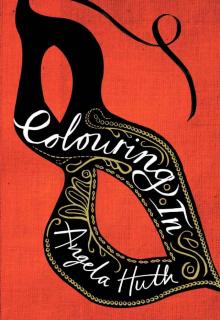- Home
- Angela Huth
Another Kind of Cinderella and Other Stories Page 4
Another Kind of Cinderella and Other Stories Read online
Page 4
No: to Tom Deary transport was not the point of the Armstrong-Siddeley. So grand a car, for a start, was not for the modest likes of him. To drive about in a machine of gleaming green paint and sparkling chrome would have been quite out of keeping with his character. It would have looked like pride. It would also have alienated him from his friends who owned lesser cars, or those who could only rely on public transport. To Tom, the car was simply a trophy: a symbol of the best of British craftsmanship, a sample from the days when cars were cars, beautifully hand-finished things which, in return for love and care and attention, would remain in pristine condition for more than a century.
Tom, who had once loved but never married, spent all his spare time on the upkeep of his inherited car. Three evenings a week he polished, vacuumed, treated the owl-eyed headlights to doses of Windowlene wiped carefully off with the most expensive chamois leather. Regularly he sent off to Dublin for supplies of superior beeswax polish with which to maintain the gleam of the walnut dashboard, with its irregular pattern of small round windows set in silver frames. Behind these, very simple dials remained unmoving, until the occasional moments when Tom turned the key and pressed the starter button, and the small arrows jumped to life telling him what he knew, but liked to have confirmed: petrol tank full, oil fine. He kept the smart little clock, also inlaid into the walnut, wound. When, at the end of his work, he would sit in the driver’s seat, relishing the smell of the fat leather seats the colour of Jersey cows, the comforting silence was scarcely chipped by the discreet tick of this gallant little clock. Garage doors open wide, sun beating on to the dazzling bonnet, stuffy warmth making him drowsy in his stationary Armstrong-Siddeley – this, for Tom Deary, was happiness.
In all probability, nothing would ever have changed his routine had there not been a sudden crisis in the garage roof. A particularly hard wind caused it to let in rain in several places – a tacky construction, the garage, for all its expense, and now presenting real danger to the well-being of the car. Tom lived on a meagre teacher’s pension – there was not much barbering these days, and the old wisps of hair he still tidied up were always ‘on the house’. So how could he pay for repairs to the garage roof? Tom put the matter to Jack Riley, who in a conspiratorial whisper made mention of the fact that he, Jack, was doing very nicely out of his little business with the pony cart. Tom then recalled that his great-niece, Sheila’s daughter, imprisoned in a loveless marriage, had mentioned she was doing well from her own sideline, selling postcards down by the harbour. The tourists were obviously the answer to his prayer, Tom thought. He walked slowly into the night, a sharp fish-wind coming up from the sea, to reflect upon how he himself could take advantage of them.
There was a struggle in his soul all night long, for Tom knew that the single thing he had to offer was the Armstrong-Siddeley. The problem was, the very thought of strangers riding in his car, however exorbitant the fare, cast his spirits so low he could feel a physical sawing in his breast bone, and in all his sobriety he felt the weak dizziness of a drunk man. Why, strangers with no appreciation of fine things would be up to all manner of tricks. They would stuff sweet papers down the arms, spill drinks on the carpet, blot out the sweet smell of the leather upholstery with their own crude scents of sweat and cheap aftershave. Tom could not bear to contemplate such things. Besides, driving them along the lanes he would be so worried about the possible lapses in behaviour that his power of concentration would be at serious risk. He might land them all in a ditch, destroying the car completely. No, there would have to be another way.
It came to him early in the morning: an idea so simple, so watertight, he wondered it had not occurred to him sooner. It was this: on fine days (business would be closed should rain threaten), he would ease the car into the road outside his house and allow any passing visitor to sit in it, for anything up to half an hour, for a small fee. Just to sit, mind. Never in the driver’s seat, and with the doors open, to make sure any alien smells could not be harboured. Tom himself would pace round the vehicle, keeping a beady eye while he regaled his customers with stories of the car’s history. Here, he acknowledged, as the car had led a somewhat dull life mostly in the garage, he would be forced to use his teacher’s imagination, and work on a few embellishments. Should there be any sign of untoward action, such as a sticky sweet being unwrapped, the offender would be politely requested to get out of the car at once.
This, it seemed to Tom, was the perfect solution. Tourists would be only too willing, surely, to pay for such an experience. Though it might lack the predictable excitement of a big dipper, or the charm of listening to Jack Riley’s pony’s hooves making their olden-days clip-clop on the cobbled streets as they sat in the uncomfortable seats of his cart, this would be something quite different, unimagined. Luxury! What Tom could advertise, in the modern jargon he so despised, but appreciated its uses, was quality experience. For how many people had ever seen so beautiful a car as the Armstrong-Siddeley? Let alone sat in one? Oh yes, he was on to a winner. The garage would surely be paid for within weeks.
Tom set about composing his advertisement, which he was to put in the window of the General Stores. He wrote in a fine copperplate hand, but the wording proved difficult. He was not a natural slogan man. Cutting down his description of the Armstrong-Siddeley’s attractions to a few compelling words he found very hard. It took some dozen attempts before he was satisfied with the finished advertisement. Meantime, he cleaned the car with extra vigour, and decided on the part of road on which he judged the car would appear to greatest advantage.
Early in the New Year, the first tourists were observed discovering the unusually quiet spot of Ballymorning. The time had come for Tom to launch his business. One morning he opened the garage doors, intent on taking out the car. But somehow he found himself distracted, polishing the back number plate and oiling the ignition key which swung from a tag of real pigskin – the sort of thing not provided by car manufacturers today. On several other occasions, he made serious attempts to begin. It was only a matter of starting the engine, he told himself. But he never quite managed to get the car into the road and, as the weeks, growing warmer, passed by, the Armstrong-Siddeley remained undisturbed in the garage.
One morning in early spring, Tom, like many of the folk of Ballymorning, heard an announcement on the local radio. It seemed that the QE2, on a journey across the Atlantic, was forced to stop, for unspecified technical reasons, just outside Ballymorning’s harbour. There it would be anchored, at midday, for some hours. Possibly even the night.
The announcer went on to say that the Mayor of Ballymorning, Clive O’Farell, had lost no time in seizing this opportunity for the people of his town to enjoy the kind of excursion they had never previously imagined. He had arranged for several fishing boats, in return for a small fee, to ferry anyone willing out to the great ship. There, they would be afforded a tour of its amazing decks and staterooms, and given a free cup of tea and plate of luxury cakes (as they were described) before returning home.
Glory be, said Tom Deary to himself, hand shaking badly over his softly boiled egg. How the devil did Clive O’Farell swing that one? Had he simply rung the Captain of the QE2 and put to him the suggestion, claiming it would be a good PR move for Cunard? Tom laughed out loud at the thought. Trust Clive: he’d always been a wily operator. He and Tom had been at school together, sat side by side in class one year. Clive, with his shocking red hair and endearing smile, had been the perpetrator of numerous tricks on teachers. His powerful innocence was always convincing. He was never caught. Tom always knew Clive would go far, and he had certainly accomplished the business with this clever move. The people of Ballymorning would be indebted to him forever – for here, at last, in most unexpected form, was the excitement they had been waiting for, needing, for so long.
Tom hurried off to ring some of his friends, find out how the thinking was going round the town. Even as he picked up the telephone, he knew that his own desire to board the QE2 would have
to be sacrificed. Because now, faced with real impetus, crowds drawn to Ballymorning from miles around, he could no longer put off the evil hour. To him, the arrival of the ship was a sign from the Almighty. ‘Get up off your backside, Tom Deary,’ he could swear he could hear the good Lord saying. And he would. Today would be the launching of the Armstrong-Siddeley. A treat the tourists could never have envisaged. So long as they could find the way to his house (explained at some length at the bottom of his advertisement), Tom had no doubt in his mind that they would find it every bit as rewarding an experience as trudging the long decks of the QE2, and gorging themselves on free cakes.
Others in the town, Tom soon learned, were of his opinion: it would be foolish indeed to waste all the opportunities within reach on this very special day. They had all heard the news at 8 a.m. and again at nine (Tom, polishing the bumpers by then, had missed the repeat). They were all hurrying to prepare for the on-rush of visitors, the like of which they might never see again. Such general astonishment and such delighted shock had not been felt in Ballymorning for as long as anyone could remember.
In the centre of the town it was evident that the radio announcement had caused a considerable flutter. Tom quickly made his way to the General Stores to make sure his advertisement had not been removed from its prominent position in the window. He was pleased to find it still propped between a pyramid of homemade chutney and a basket of early Easter eggs: he was paying 50p a week for the exclusive position. Outside the two pubs, plastic chairs and tables were being dragged on to the pavement by owners who would normally scorn any such niceties. Fruit and vegetables were hastily being arranged in boxes outside the General Stores, a gesture not normally risked due to the changeable nature of the weather. Polly Shaunnessy, in the tobacconist, had come up with the idea of a special offer on dozens of iced lollies she had mistakenly over-ordered some months ago. She had carefully chalked the announcement on her old school slate. In the rush to sell wares, any old wares, several housewives not known for their hospitality now put notices for Teas on the front windows and were, Tom presumed with a smile, hastily baking behind their net curtains.
He decided to take a quick look at the harbour, see what was happening down there. After that, he would have to return home, drive the car into the street and be on duty for the rest of the day. In his mind, he saw dozens of visitors, those who preferred the idea of the Armstrong-Siddeley to the QE2, impatiently awaiting their turn to experience its magnificent seats. He might, he felt, have to be quite strict with the visitors: put on his schoolmaster’s authoritative voice, insist they wait their turn in orderly fashion.
Five minutes later, he was amazed to see that, already, an unusual amount of cars were parked. Judging from their number plates, they had come from as far afield as Belfast and Cork – why, some of them must have heard the news at six o’clock and started driving towards Ballymorning straight away. Many of them kept to their cars, unspeaking as they took in the stretches of sky and sea before them, drinking tea from flasks. Others, collars up against the breeze, paced back and forth, cameras to the ready, their pleasure at being first, getting the good places, quite evident. None of them was yet drawn to either of the ice-cream vans – there had plainly been an earlier race for the best position. This had been won, by a few yards, by the local lad, Polly Shaunnessy’s son Paddy, whose ancient converted van was splashed with wildly spelt promises. Tuti Gelati! Genuine Italein flavours! Irish-Neapoltan ices! Paddy’s grandmother had come from Naples. His mother had inherited her talent for making ice-cream. Paddy, with his troublesome van that was a familiar sight broken down at the roadside, was one of the few young ones who had used his initiative instead of fleeing to a city, and was making an almost adequate living. Tom was pleased to see Paddy had parked as near as possible to the flight of stone steps that led down from the harbour wall to the fishing boats. He could not have been better placed to catch tourists in the queue to go over to the QE2. Competition, in the shape of a sterile commercial company van plugging ‘Softee Ices’, had not dared to park so close to the edge of the harbour and the surly-looking salesman within was no match for Paddy Shaunnessy’s cheeky charm. It was a grand thing Paddy was the winner in his competition, thought Tom, and bought a chocolate ice to show where his loyalties lay.
‘It’s a great position you’ve got yourself here, Paddy . . .’ he said. ‘You should do well today.’
‘I’m hoping so, myself. Are you going over to the big ship?’
Tom shook his head.
‘In charge of my own business. Too good an opportunity to miss. It’s the car, up there at the house. The Armstrong-Siddeley, all polished fit for the Pope himself. I’m bringing it out for people to sit in. Experience, you know. Should you see anyone fed up with waiting to get over to the QE2, you might oblige me by suggesting there’s an alternative treat awaiting them not two streets away.’
‘Sure, and I’ll do that, Tom. Good luck to you,’ said Paddy.
Tom, back to the sea, saw that a great many cars now were crowding into the harbour. There was a traffic jam in the small street that led down to the sea-front. A man was shouting, waving his arms. In the Edwardian houses of dun-coloured stucco and paintwork of long-dead brown, windows were opening, heads appearing. Turning away from this unusual, faintly troubling sight, Tom wandered down the long, narrow arm of the harbour wall that jutted into the sea. He made his way carefully between the nets laid out on the ground to dry. He licked slowly at the superb chocolate ice-cream – there was no commercial firm in the world that could compete with Polly Shaunnessy’s ices – and looked over the almost flat grey waters, chipped here and there with sliver shards small as candle flames. There was no sun in the sky, but great braids of light fell vertically from narrow gulfs in the cloud. Tom preferred these subtle colourings of the sea and sky to the more popular blues, sparkling with sun. In the water-colours of Ireland he found a low-key peace. The bright places in travel brochures had never tempted him. The smell of tanning oils made him nauseous. He liked brisk, fresh air. Ice-cream finished, he took a deep breath: smells of salt and fish were plaited into the sea breeze. He had grown up with the constancy of this pungent breeze, and would never desert it to live further inland.
With some reluctance, Tom Deary broke his reflections to turn for home. In truth, he would have liked to stay where he was, eyes fixed on the horizon until the QE2, no more than a white speck the size of a distant gull, cut its way through the distant greys. He would have liked, with the others, to have sailed over to her on one of the rank fishing boats, and enjoyed the few hours contrast sitting like a bloody millionaire in a cushioned chair, chef’s cakes and sandwiches on a table beside him . . . Something good to remember, that would have been. The stuff of fantasy. Still, it was more important to launch his own business. Mindful of the exigencies of the garage roof, Tom put wistful thinking to one side and hurried home.
Half an hour later he was gently easing the Armstrong-Siddeley from the garage. He parked it, with all the precision of a chauffeur used to driving such a car, in the road outside his bungalow. Although its high polish and dazzling chrome were as near perfection as anyone could imagine, Tom was of the opinion that it would be a waste of time merely to stand on guard beside the car waiting for customers. So he fetched his box of dusters the colour of marigolds, and the paler, primrose lengths of chamois leather, and made his way round the familiar body of his beloved machine, re-polishing what had already been re-polished a thousand times. He contemplated switching on the wireless. This, like the dials and the clock, was exquisitely incorporated into the dashboard – a few inches of knotty golden fabric, above a couple of handsome switches, was the only indication that the complicated mechanics of a wireless were embedded behind the walnut facia. But then he changed his mind: best not to tax the battery, he thought. Best not to ask too much of an old girl on her first outing for a very long time.
So Tom fetched his small black portable radio from indoors, and listened to it while
hand and duster made their balletic circles across the dazzling paintwork. On the local news he heard that the response to the QE2’s imminent arrival in Ballymorning had been beyond all expectation. People were arriving from all over. On the main road from Dublin, there was a queue outside the town almost a mile long. Visitors were parking on double yellow lines. The local police force was overwhelmed. Supplementary forces were being rushed in to control the traffic. One pub had reportedly already run out of beer. And down at the harbour the crowds were estimated at five hundred. People were warned, said the newscaster, to keep well away from the edge of the harbour wall, lest in the scrum someone should be pushed over the edge.

 Sun Child
Sun Child South of the Lights
South of the Lights Virginia Fly is Drowning
Virginia Fly is Drowning Of Love and Slaughter
Of Love and Slaughter Such Visitors
Such Visitors Once a Land Girl
Once a Land Girl Land Girls
Land Girls Colouring In
Colouring In Nowhere Girl
Nowhere Girl Monday Lunch in Fairyland and Other Stories
Monday Lunch in Fairyland and Other Stories Another Kind of Cinderella and Other Stories
Another Kind of Cinderella and Other Stories Invitation to the Married Life
Invitation to the Married Life Easy Silence
Easy Silence